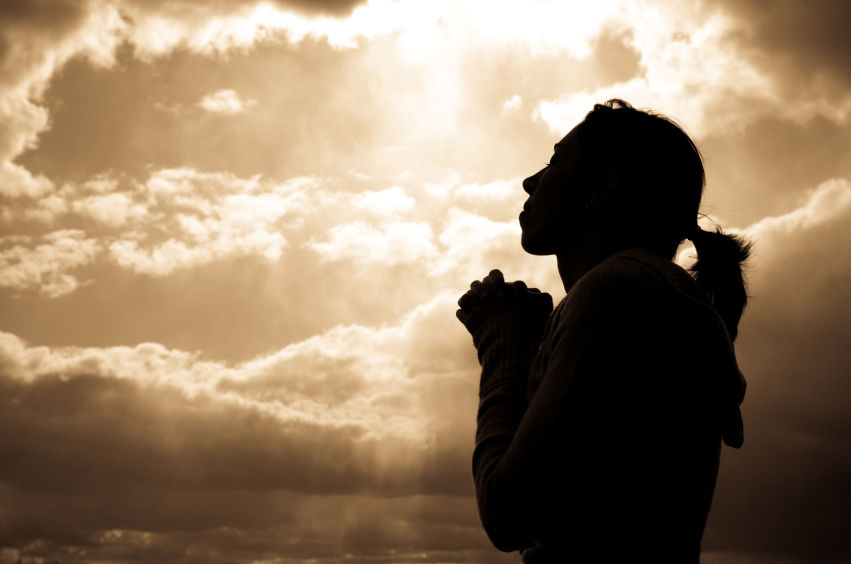When we no longer know how to pray, the Spirit, in groans too deep for words, prays through us.
St. Paul wrote those words and they contain both a stunning revelation and a wonderful consolation — namely, there is deep prayer happening inside us beyond our conscious awareness and independent of our deliberate efforts. What is this unconscious prayer? It is our deep innate desire, relentlessly on fire, forever somewhat frustrated, making itself felt through the groaning of our bodies and souls, silently begging the very energies of the universe, not least God Himself, to let it come to consummation.
Allow me an analogy: Some years ago, a friend of mine bought a house that had sat empty and abandoned for a number of years. The surface of the driveway was cracked and a bamboo plant, now several feet high, had grown up through the pavement. My friend cut down the bamboo tree, chopped down several feet into its roots to try to destroy them, poured a chemical poison into the root system in hopes of killing whatever was left, packed some gravel over the spot, and paved over the top with a thick layer of concrete.
But the little tree was not so easily thwarted. Two years later, the pavement began to heave as the bamboo plant again began to assert itself. Its powerful life-force was still blindly pushing outward and upward, cement blockage notwithstanding.
Life, all life, has powerful inner pressures and is not easily thwarted. It pushes relentlessly and blindly towards its own ends, irrespective of resistance. Sometimes resistance does kill it. There are, as the saying goes, storms we cannot weather.
But we do weather most of what life throws at us, and our deep life-principle remains strong and robust, even through the frustrations we have experienced. And the dreams in us that have been shamed slowly muzzle us into a mute despair so that our prayer-lives begin to express less and less of what we are actually feeling.
It is through that very frustration that the Spirit prays, darkly, silently, in groans too deep for words.
In our striving, our yearning, our broken dreams, our tears, in the daydreams we escape into, and even in our sexual desire, the Spirit of God prays through us, as does our soul, our life-principle. Like the life-forces innate in that bamboo plant, powerful forces are blindly working inside us too, pushing us outward and upward to eventually throw off whatever cement lies on top of us.
This is true, of course, also of our joys. The Spirit also prays through our gratitude, both when we express it consciously and even when we only sense it unconsciously.
Our deepest prayers are mostly not those we express in our churches and private oratories. Our deepest prayers are spoken in our silent gratitude and silent tears. The person praising God's name ecstatically and the person bitterly cursing God's name in anger are, in different ways, in radically different ways of groaning, both praying.
There are many lessons to be drawn from this. First, we can learn to forgive life a little more for its frustrations and we can learn to give ourselves permission to be more patient with life and with ourselves. Who of us does not lament that the pressures and frustrations of life keep us from fully enjoying life's pleasures, from smelling the flowers, from being more present to family, from celebrating with friends, from peaceful solitude, and from deeper prayer? So we are forever making resolutions to slow down, to find a quiet space inside our pressured lives in which to pray.
But, after failing over and over again, we eventually despair of finding a quiet, contemplative space for prayer in our lives. Although we need to continue to search for that, we can already live with the consolation that, deep down, our very frustration in not being able to find that quiet space is already a prayer. In the groans of our inadequacy, the Spirit is already praying through our bodies and souls in a way deeper than words.
One of the oldest, classical definitions of prayer defines it this way: Prayer is lifting mind and heart to God. Too often in our efforts to pray formally, both communally and privately, we fail to do that, to actually lift our hearts and minds to God. Why? Because what is really in our hearts and minds, alongside our gratitude and more gracious thoughts, is not something we generally connect with prayer at all. Our frustrations, bitterness, jealousies, lusts, curses, sloth and quiet despair are usually understood to be the very antithesis of prayer, something to be overcome in order to pray.
A deeper thing, however, is happening under the surface: Our frustration, longing, lust, jealousy and escapist daydreams, things we are ashamed to take to prayer, are in fact already lifting our hearts and minds to God in more honest ways than we ever do consciously.
Oblate of Mary Immaculate Father Ronald Rolheiser is a specialist in the field of spirituality and systematic theology. His website is www.ronrolheiser.com.

